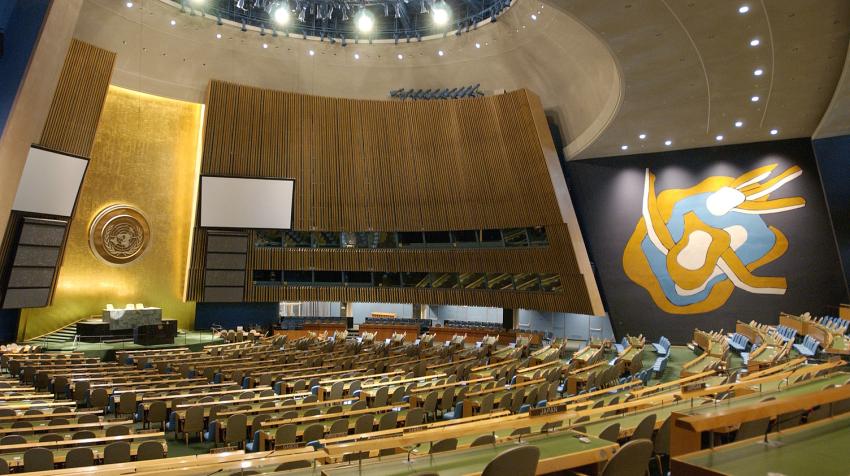The United Nations General Assembly has taken a historic step towards shaping the future of artificial intelligence (AI). On Thursday, the body unanimously adopted a landmark resolution promoting the development and use of "safe, secure, and trustworthy" AI systems for the benefit of all.
Spearheaded by the United States, the resolution garnered widespread support, with over 120 member states co-sponsoring the text. This international backing signifies a collective commitment to harnessing the immense potential of AI while mitigating potential risks.
The resolution emphasizes the crucial role of AI in accelerating progress towards the UN's Sustainable Development Goals (SDGs), a roadmap for tackling global challenges like poverty, hunger, and climate change. AI's ability to analyze vast amounts of data and automate complex tasks can be instrumental in driving sustainable solutions across various sectors.
However, the resolution acknowledges the ethical considerations surrounding AI development and deployment. It underscores the importance of respecting, protecting, and promoting human rights throughout the entire AI lifecycle, from design and development to deployment and use. This includes ensuring that AI systems do not perpetuate discrimination or bias, a growing concern as AI algorithms are increasingly used in areas like loan approvals and criminal justice.
Bridging the digital divide is another key focus of the resolution. The UN recognizes the potential for AI to exacerbate existing inequalities between developed and developing nations. The resolution calls for measures to bridge the "AI divide" by ensuring equitable access to the technology and the resources needed to develop and utilize it responsibly. This includes promoting international collaboration and knowledge-sharing initiatives to empower developing countries to harness the benefits of AI for their own development goals.
The resolution also emphasizes the need for robust governance frameworks to oversee the development and use of AI. Member states are encouraged to establish national oversight mechanisms and collaborate on developing international standards to ensure responsible AI development and deployment.
The UN's landmark resolution marks a critical juncture in the global conversation on AI. It signifies a shared commitment to harnessing this powerful technology for good, while mitigating risks and ensuring equitable access for all. As AI continues to evolve and permeate various aspects of our lives, the international community's continued collaboration will be crucial in shaping a future where AI serves as a force for positive change.

